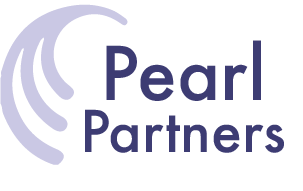Unless you've been living under a rock, you are aware that the current financial crisis is causing many businesses to rethink what they are doing. That often entails scaling back or postponing large innovation efforts, or modifying new product releases to better align with consumers' changing priorities. The intention here is good. Since we won't realize the benefits of the big innovation project until some point in the future, what harm will a few more months do? In the meantime, we can make a few quick hits, and shore up the bottom line. All too often, however, the quick hit becomes an all consuming endeavor for little gain, the big innovation project falls off the rails, and the future arrives with depleted resources and precious little on the horizon.
I happen to be a proponent of quick hits. When they fail to deliver, it's usually not because of a big, bad decision. It's usually the result of several small, good-in-the-moment decisions, that collectively take the project off track. Here are a few things to keep in mind at each small decision point, that should help your quick hit to add value:
Make sure that the quick hit you are undertaking is in fact quick. Define up front what will be done, and stick to it ruthlessly. While a bigger project may benefit from the "while you're doing this, you might as well…" syndrome, a quick hit needs relentless focus.
If at all possible, keep the longer term projects moving, even if at a slower rate. This is hard for tiny companies, but it's crucial. Longer term projects require that people spend more time thinking about the implications of their decisions. Being able to tap into this will help the quick hit team to keep the right goals in mind, and not base everything on expediency.
Regarding expediency, just because something can be done quickly, does not mean it should be done. Putting lipstick on a pig does not change the pig. All this will do is erode your consumers' confidence in you. They will feel like you tried to put something over on them, and they won't want to pay for it. Best to show them that you will only act in their best interest. Everything else is waste. Seth Godin has an interesting post today about making those tough decisions.
Remember that you exist to serve your customers. If you know that your consumers will benefit from a certain feature, function, or service, it's better to make a small change in that direction than to implement something totally new that they care less about. Again, you need to build their confidence that you are there for them, and they will stay with you for the longer haul.
Finally, remember that whatever you do for your quick hit, it will be with you longer than you planned. Undertaking a quick hit diverts resources from other projects, and you may need to depend on the quick hit for longer than initially estimated while the other projects get back on track. Make sure it's something you, and your consumers, will value.
